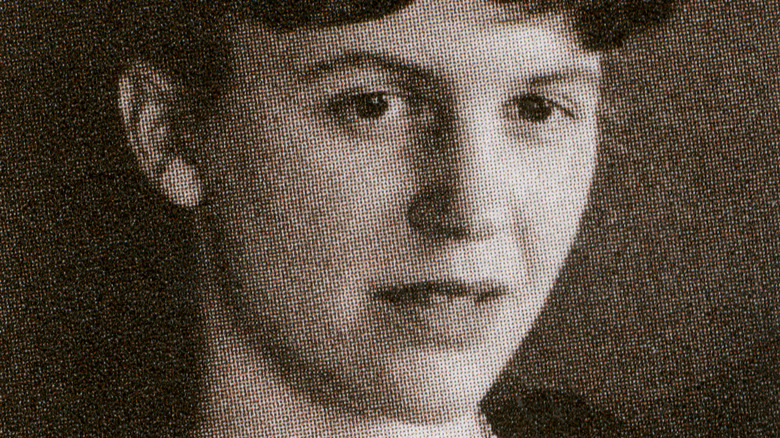The Twitter Account Dedicated To Sylvia Plath's Love Of Food
Even long after her death, Sylvia Plath's legacy lives on. Dynamic and revered, Plath's writings didn't shy away from controversial elements, and as Poetry Foundation notes, helped claim her status as one of the best-known poets of the 20th century.
For scholars like Maeve O'Brien (she completed a Ph.D. on Plath), being a Plath fan isn't just about liking poetry; it's an identity (via Loving Sylvia Plath). "Sylvia Plath and her work are often used as an emblem for a certain kind of young woman — one with big emotions no one else can possibly understand," explains Book Riot. "For many young people, Plath's only novel is the first book that resonates deeply by talking openly about depression. With something that meaningful, it is inevitable to become a symbol of identity."
It wasn't only Plath's writings that captured imagination and heart. Arriving in Cambridge to study on a Fulbright scholarship, Plath brought American fashion with her: bright lipstick, red shoes, styled hair, and even a swimsuit that made it into the university's paper. She was primed for fame, states The Atlantic. While common portrayals depict Plath as waifish or anorexic, Rebecca Brill insists such descriptions may not be true and are instead an attempt to diminish Plath's intellectual and artistic prowess (via Atlas Obscura). Twitter profile @whatsylviaate is dismantling these notions by amplifying a different aspect of Plath's life: her relationship with food.
A new approach to understanding Plath
Relying on Plath's letters, journals, poems, and other writings, Rebecca Brill began the Twitter account during the 2020 lockdown, per Atlas Obscura. No stranger to Twitter, Brill had been tweeting passages from Susan Sontag since 2018 and took a similar approach to this account; this time, however, Brill set out to tweet meals and quotes from Plath's work. The account has now amassed over 59,000 followers through daily postings and weekly illustrations.
Some of Plath's food descriptions echo the tensions of a woman balancing a writing career with responsibilities as a homemaker: "God, must I lose it in cooking scrambled eggs for a man?" (via Twitter), while other descriptions show Plath's love for recipes.
"Why do we care what celebrities eat?" asks Vox, answering that how a celebrity eats offers glimpses into their lives, what they think, and ultimately, if we are in any way similar to the stars we see and read about. Through Brill's account, we, too, can see whether we share any similarities with a remembered poet.

